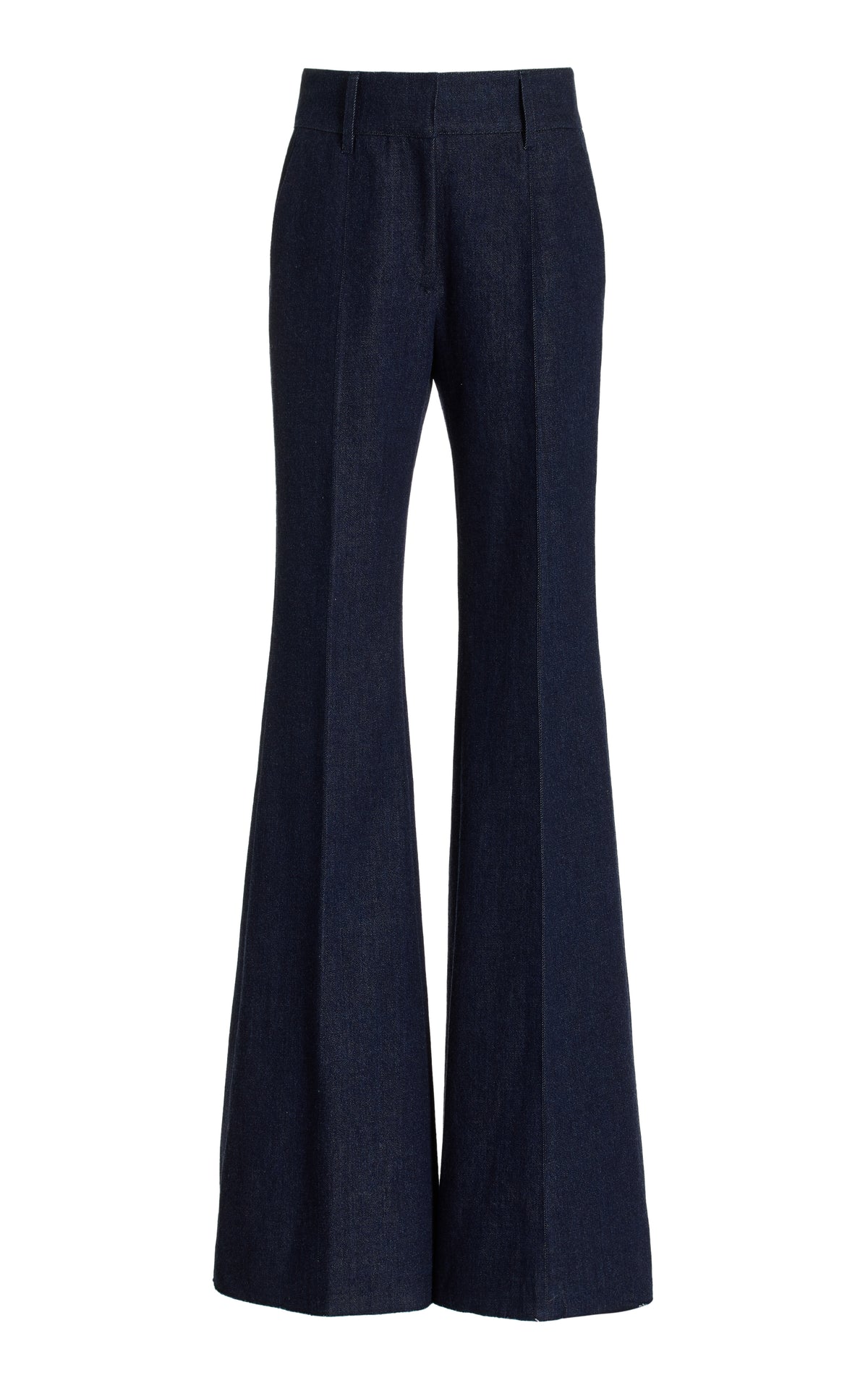
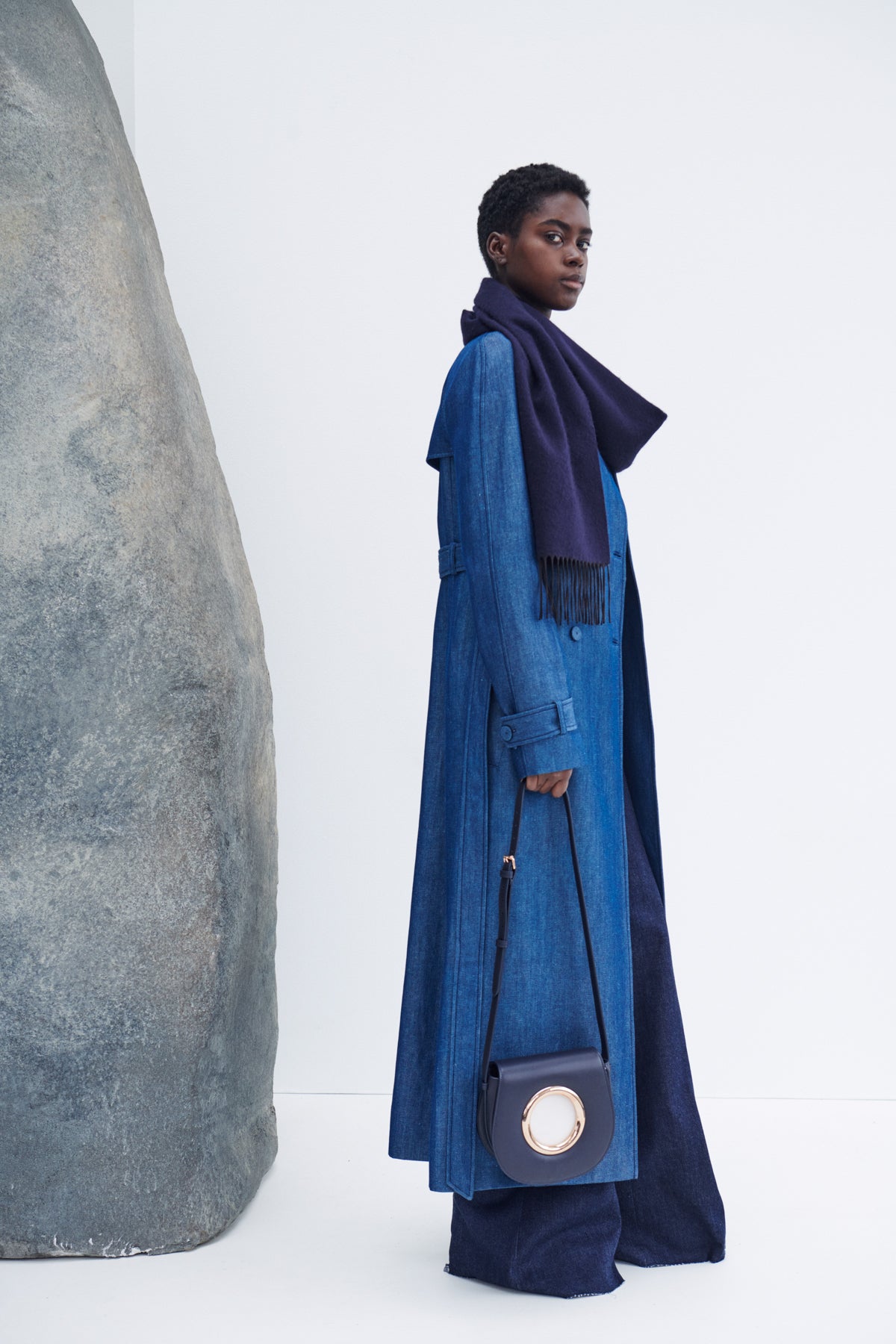
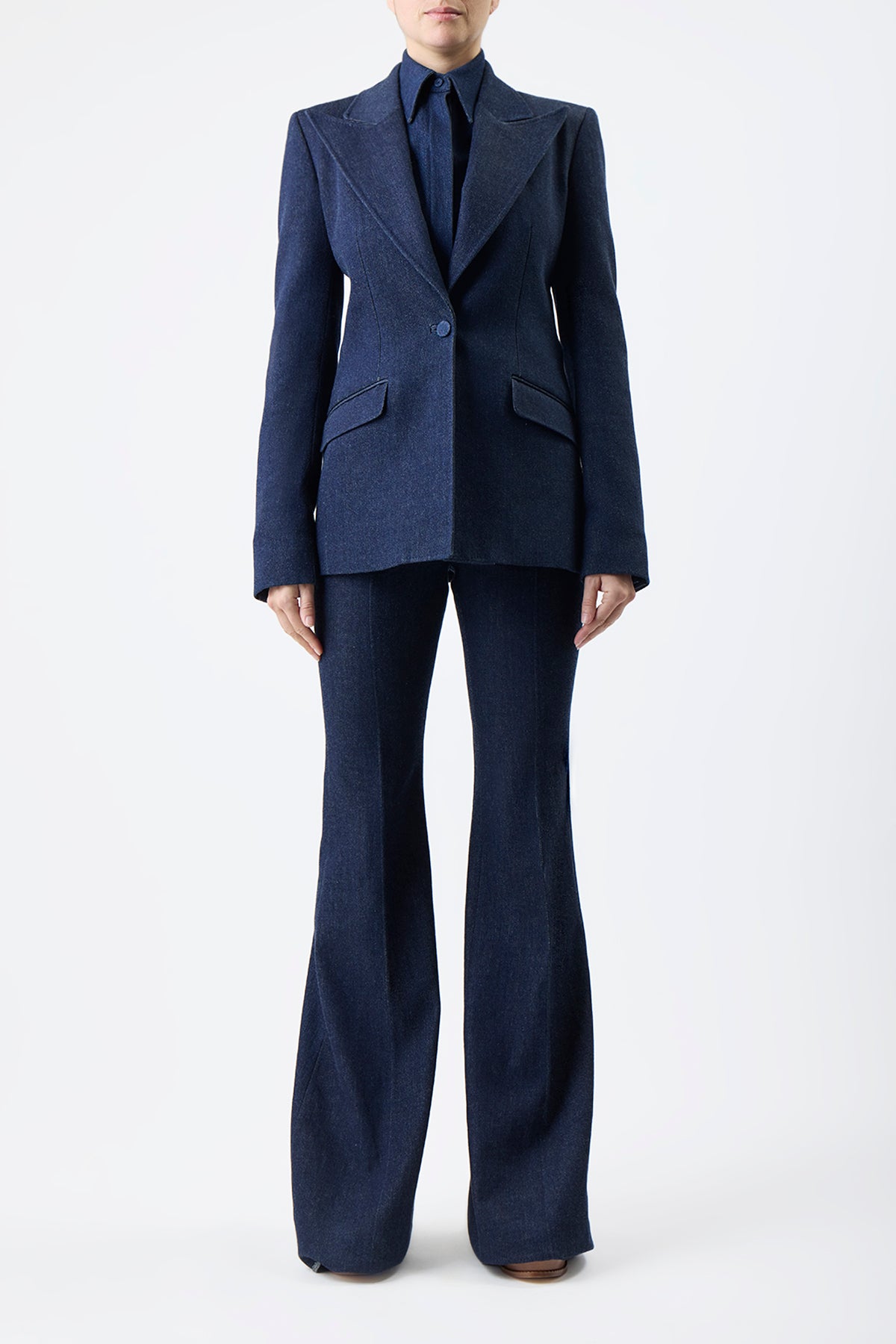
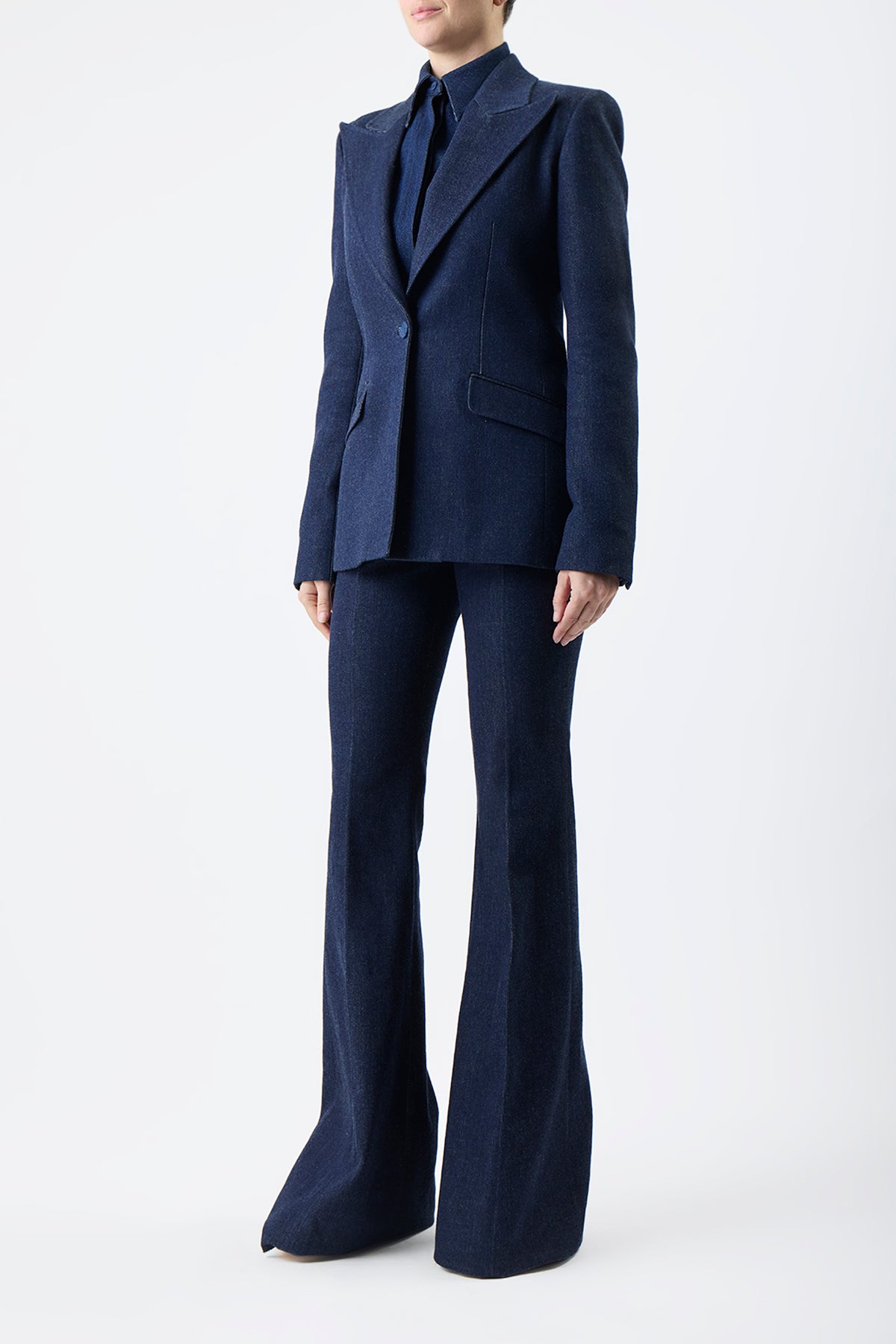
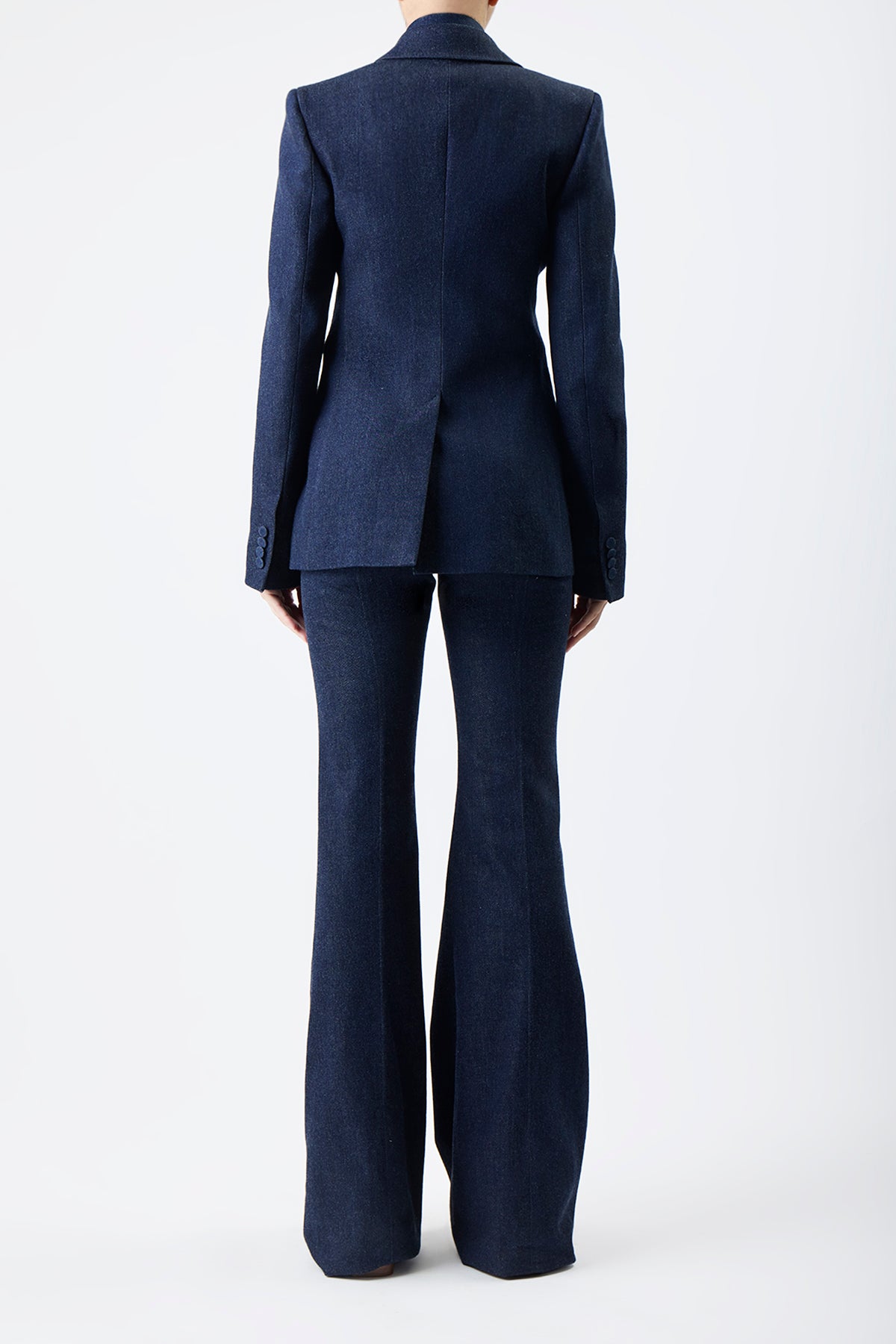
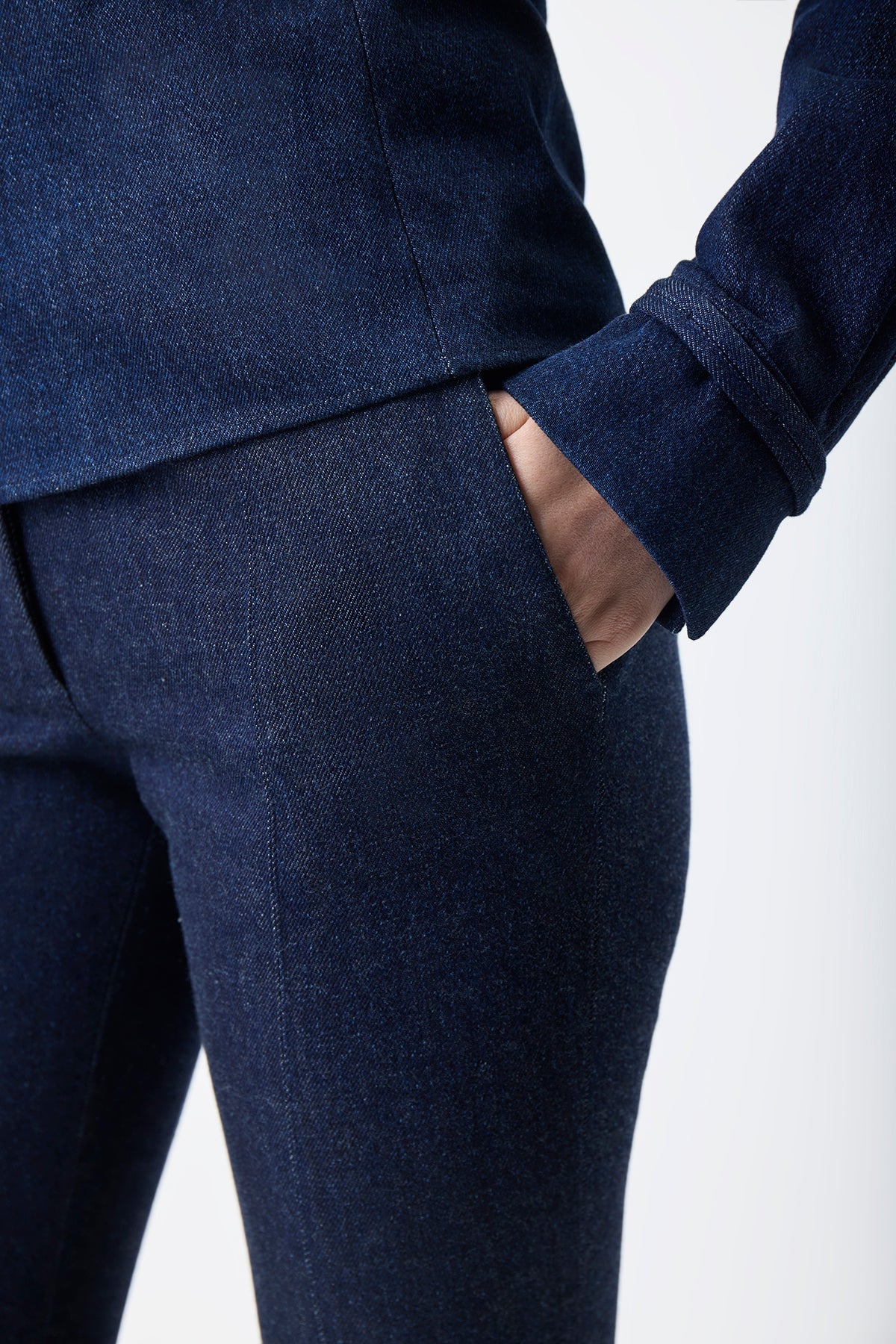
Material Supplier Transparency:
Rhein Pant in Denim
The Rhein pant creates an introduction to a new, easy silhouette- low-slung and languid in movement- Seaming detail at the front and back leg, create a perfectly streamlined leg that subtly flares towards the ankle.
Details:
- 100% organic cotton (Japan). Dying/weaving/finishing in Japan.
Cotton is a natural plant fiber that is favored for its softness, breathability and comfort. It grows in warm climates on 6 continents. High quality cotton is easy to care for, due to its ability to withstand washing, detergents and heat.
This mill was founded in the 1950s, when it produced cotton fabrics for clothing and industrial use. They began making denim in 1960, switching fully to rope-dyed denim production in the 1970s. They are one of few mills today that still produce rope-dyed denim, which is valued by denim aficionados because of the authentic process and way the fabric develops a coveted fade that isn’t possible in mass-produced jeans. This mill takes measures to live in harmony with its local community and the natural environment. While most indigo dye used for industrial purposes is synthetic, they are increasing the use of natural indigo plants. They also pride themselves in organic cotton, which is not only better for environmental and human health, but also has a better feel on one's skin. In terms of water management, they work directly with the public water system. They purify all wastewater and return it to the land for agricultural use. They are considerate of energy sources too, using LED lights in all facilities to decrease power consumption. They have solar panels in all three of their plants, which offsets power from sources that pollute the environment. Currently, the solar power generates 10% of their energy consumption. They are actively working to increase the percentage of energy that comes from solar. They have the following certifications: OEKO-TEX 100 Standard - Certified and the Better Cotton Initiative (BCI).
This garment was produced at a family-owned Italian factory. It was initially founded in 1957 as a traditional tailor shop, transitioning to become a factory in 1985. Today it is run by the founder’s daughter and her husband.
